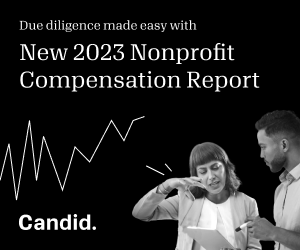Advancing justice requires more than hope—philanthropy must act

From my early days researching how affirmative action was playing out in higher education to today serving as chief of equity and culture at the William and Flora Hewlett Foundation, I have viewed it as a small but important part of America’s effort to right prior wrongs. I have also personally seen and experienced affirmative action’s benefits for universities, workplaces, communities, and broader society.
That’s why, in spite of disheartening decisions like Dobbs v. Jackson, which rolled back abortion rights, I held out hope that maybe—just maybe—the conservative justices of the Supreme Court would defy my expectations, embracing both humanity and reality, to uphold race-conscious admissions in higher education. Unfortunately, the court handed down divisive rulings that threaten decades of progress made by multiracial coalitions fighting for a more just and inclusive democracy.
Hope is not strategy
In his opinion, Chief Justice John Roberts failed to acknowledge the long legacy and present-day reality of racialized differences and instead projected an idealized and inaccurate image of a colorblind society. Justice Clarence Thomas’s opinion, meanwhile, made evident his disconnect from the realities many people of color encounter each day: “I hold out enduring hope that this country will live up to its principles so clearly enunciated in the Declaration of Independence and the Constitution of the United States: that all men are created equal, are equal citizens, and must be treated equally before the law.”
As someone who had held out hope that the Supreme Court would uphold affirmative action, I can attest to the folly of relying on enduring hope alone. To be clear: Repairing the harm of centuries of systemic racism and discrimination absolutely requires hope—it’s what fuels racial justice advocates like me and the millions of others who came before me and with whom I stand in solidarity now. But hope is not strategy and can never be enough. Removing racism from our societal bloodstream requires that we also embrace and advance a proactive approach.
Philanthropy’s obligation and duty to act
Philanthropy, which has perpetuated pervasive inequities in our society, has a special obligation and duty to act. It’s that sense of duty that, in 2021, inspired me to leave my position as an education program officer at Hewlett to lead its racial justice work. Since then, like other foundations, we have made steady progress, particularly in beginning to shift our internal culture and in getting nearly $40 million in funding to organizations advancing racial justice and equity.
Recent articles, however, point to a disheartening rollback in philanthropy’s efforts to advance racial justice. The economy and rising inflation have certainly not helped, but the conversations I’ve had with partners speak to a more worrying trend that has led to growing uncertainty and fear in the racial justice community. In a time when racial justice organizations are confronting increased violence, threats, and racism, they are also being forced to reduce staff, cut essential programs, and limit their ambitions. Beyond funding, partners have also pointed to increased discomfort among the philanthropic community with being vocal on critical issues like equity for fear of alienating some people or being seen as too “radical.”
Stepping up
With the Supreme Court’s announcement on affirmative action, philanthropy can either step back from racial justice or it can step up. To foundations trying to figure out this new landscape, I offer this reflection from Martin Luther King, Jr.: “Philanthropy is commendable, but it must not cause the philanthropist to overlook the circumstances of economic injustice which make philanthropy necessary.”
Foundations like Hewlett must double down and do our part. We should support organizations that are on the front lines of fighting for racial justice and equity in the courtroom. We should also explore with other funders how best to help grantee partners and the larger field figure out what the decision means and how to sustain progress via legal defense funds, legal technical assistance, curation of resources, communications support, and more. We must listen to the needs of the field and respond so advocates know they are not alone.
More broadly, philanthropy must stand firm and unwavering in our commitment to securing a just, multiracial, inclusive democracy. Rather than reducing funding, we can give racial justice organizations the type of resources that allow them to dream big—in the form of flexible, multiyear support. Philanthropic leaders can shift policies and practices to be more inclusive and just, including by making the funding process more streamlined and more transparent. We can identify organizations that would benefit from additional support during moments of crisis and “lend a hand” to ensure that they remain formidable actors in the fight against injustice. We can bravely embrace our values and use our voices to engage in constructive dialogue with others who might have different viewpoints but agree that we all deserve a chance to thrive.
Philanthropies, like our racial justice organization partners, must embrace the fact that this work will take time. And resources. And commitment. And yes—even hope.
Charmaine Mercer is chief of equity and culture at the William and Flora Hewlett Foundation, where she helps identify, shape, and promote practices, programming, and grantmaking to advance racial justice.








Take a step forward for Black liberation